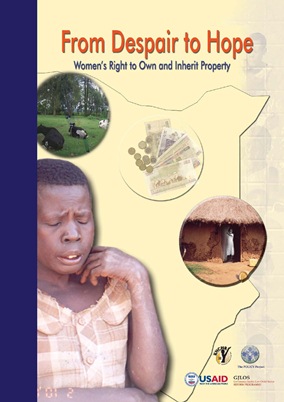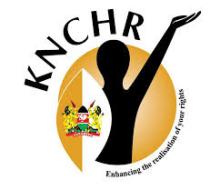Resource information
The right to own and inherit property is a crosscutting right that traverses the realm of civil, political, economic, social and cultural rights. This right is central to the true empowerment of everyone in society (men, women, boys and girls) and is a key developmental right. It is the common right to all societies and cultures. It is central to securing the dignity of all members of the society.
Emerging legal and social trends, as they relate to the ownership and inheritance of property, indicate a practice that has largely worked out to the detriment of women in virtually all communities and social classes in Kenya. They include the laws relating to property, to marriage and dissolution of marriage, land registration systems, and the social and cultural attitudes that determine the actual enjoyment of these rights.
Compounding the problem is the HIV/AIDS pandemic, which has caused massive destitution, displacements, blame-passing and mistrust in nearly all communities in Kenya. The high stigma associated with it has increased the vulnerability of women in this regard. In no other community in Kenya is the twin problem of societal and cultural practices - which discriminate against women and thereby translate into widespread of HIV/AIDS - more stark than within Luo Nyanza.
It is against the backdrop of the realisation of this continuing trend of violation of women's (especially, but by no means limited to widows) right to property ownership and inheritance rights and the urgency of the problem in the face of HIV/AIDS pandemic that the POLICY Project - Kenya ( funded by the Futures Group) and Kenya National Commission on Human Rights (KNCHR) (funded by the Governance Justice Law and Order Sector reform program) came together inspired by the same need to work on enhancing the enjoyment of this right by women in Kenya.
You can download this publication from the Policy Project's website.


